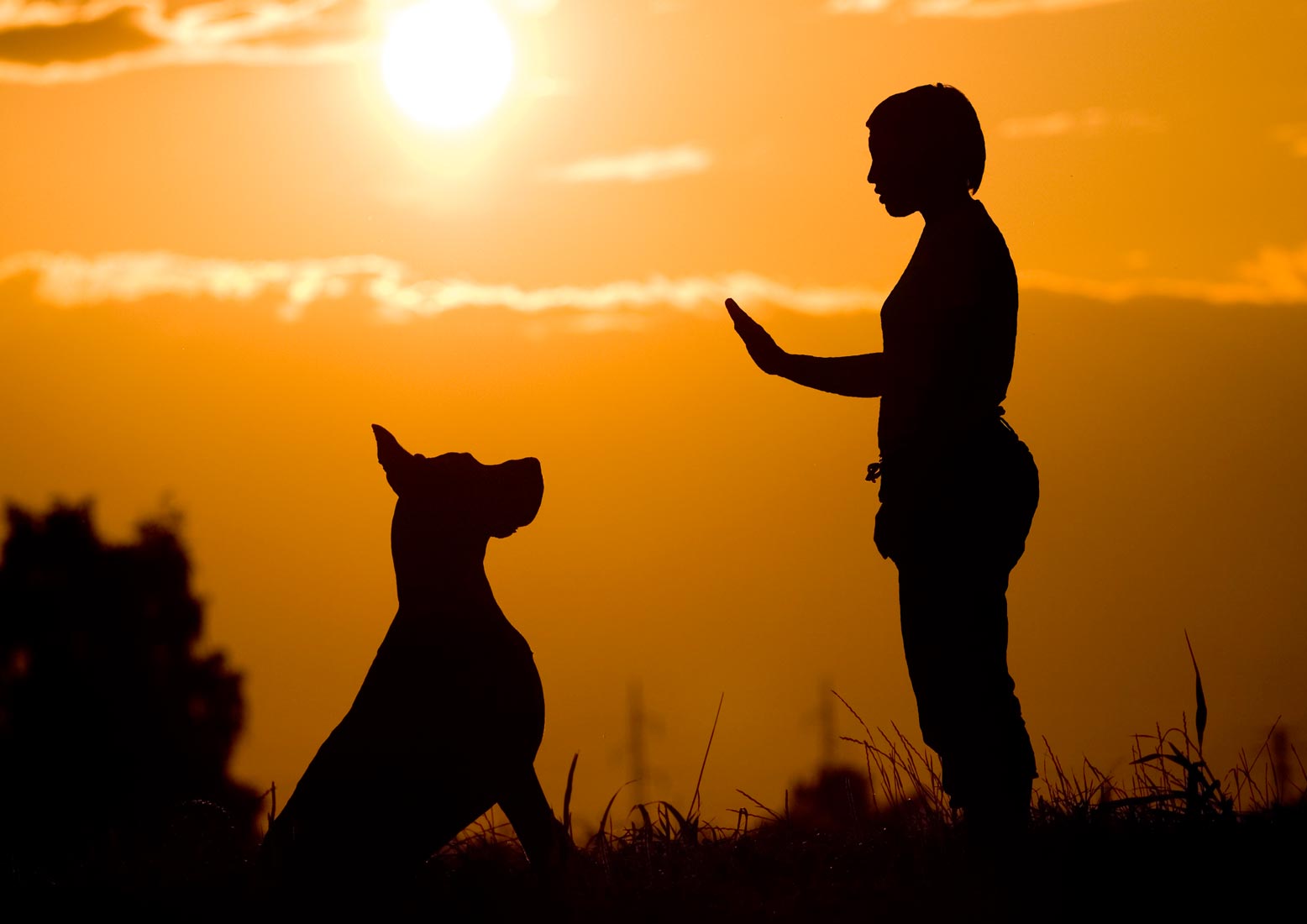Tips for Helping Your Deaf Dog

If your dog was born deaf or develops deafness, you might be concerned about whether you can provide the help he needs for a good quality of life. We have some tips for helping, training, and living with a deaf dog.
Establish Ways of Getting Your Deaf Dog's Attention
To do any training or directing of your deaf dog, you are going to need him to look at you. The first thing you should teach your deaf dog is how to respond to your efforts to get his attention. Here are some ways you can get your deaf dog to look at you:
- Wave a hand in front of his face
- Thump your fist or foot on the floor to create a vibration under his feet
- Touch him (choose one spot on his body to use routinely for this purpose)
Try to choose just one of these methods and train your dog to respond to it by repeating it and giving him a treat when he reacts to it by looking at your face.
Decide on a Signal That Means "Good Dog"
When you are training a hearing dog, it's normal to use verbal praise to help positively reinforce your training. It lets your dog know he's on the right track and helps him repeat those actions when asked. Your deaf dog needs that positive reinforcement, too, but he can't hear words or clicker sounds. You will need to establish a signal that essentially means "yes" or "good dog." A thumbs up signal is a common one used by trainers of deaf dogs.
Teach your dog what the thumbs up or other chosen signal means by giving your dog a treat simultaneously to showing him the signal. Over time, you can give a treat less often, and your dog will understand that the signal means that he's doing the right thing.
Use Hand Signals for the Rest of Your Obedience Training
Anywhere you would normally use a voice command for your dog, you will need to choose and use a hand signal. Just be consistent with what you choose and train your dog to respond using positive reinforcement. You can use the same techniques as you would for a hearing dog except that you will always need to get him to look at you first, and you'll use a hand signal instead of a word for him to respond to.
It's a good idea to train your deaf dog to look at you periodically out of habit. That way, if he's off-leash with you somewhere, he will know to "check in" with you every few moments to see if you're giving him a hand signal. You can do this by having him look at you and giving him a treat every few moments during your training sessions.
Deaf Dogs Startle Easily
One thing to keep in mind about your deaf dog is he might startle easily. Because he can't hear someone coming, a sudden touch might scare him.
Over time, you can help desensitize your dog to unexpected touches. Start by touching him gently when he's looking at you and rewarding him with the "good dog" signal and a treat. Slowly, over time, move to gentle touches when he's not looking at you, also accompanied by positive reinforcement.
Practice this with your dog often to help him get used to sudden touches, but it's also important to let people who come into your home know that your dog is deaf and they should try to let him see that they're there before they touch him.
You May Also Like These Articles:
How to Keep Your Dog Hydrated This Summer
What You Need to Know in Case of a Canine Emergency
Common Causes of Sudden Death in Dogs
How to Medicate Your Dog's Ears
Is Feeding Hard Food Enough to Keep My Dog's Teeth Healthy?
How to Tell If Your Dog Needs More Exercise
Disclaimer: This website is not intended to replace professional consultation, diagnosis, or treatment by a licensed veterinarian. If you require any veterinary related advice, contact your veterinarian promptly. Information at DogHealth.com is exclusively of a general reference nature. Do not disregard veterinary advice or delay treatment as a result of accessing information at this site. Just Answer is an external service not affiliated with DogHealth.com.
Notice: Ask-a-Vet is an affiliated service for those who wish to speak with a veterinary professional about their pet's specific condition. Initially, a bot will ask questions to determine the general nature of your concern. Then, you will be transferred to a human. There is a charge for the service if you choose to connect to a veterinarian. Ask-a-Vet is not manned by the staff or owners of DogHealth.com, and the advice given should not delay or replace a visit to your veterinarian.



